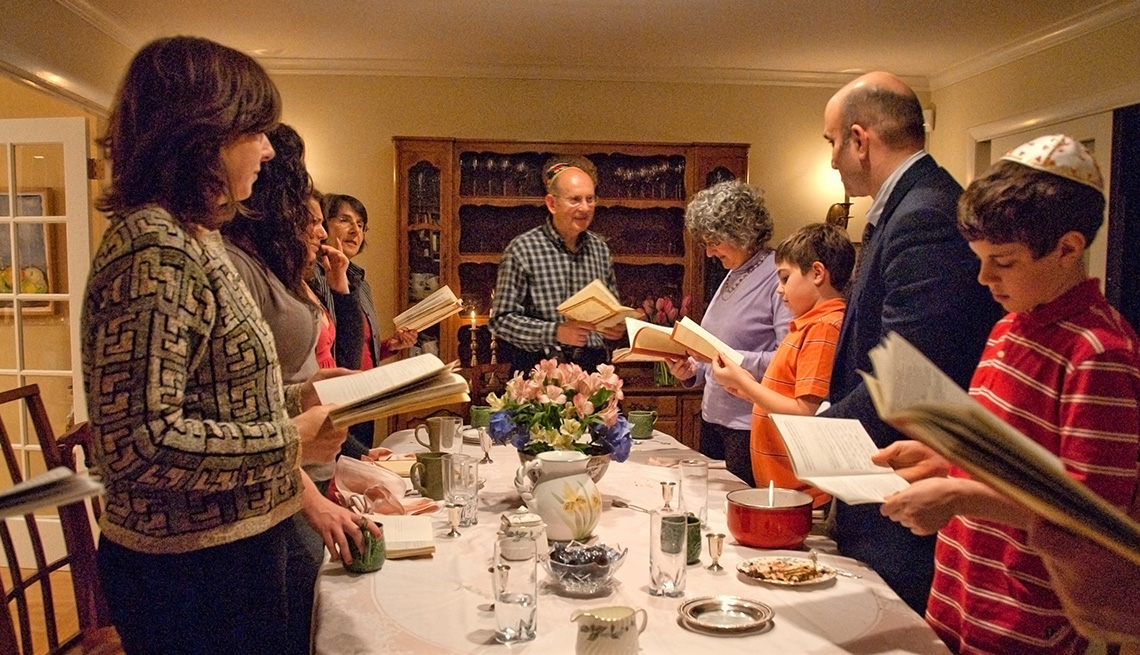Play all audios:
Andrew Silow-Carroll, 60, editor of _The New York Jewish Week_, and his wife, Sharon, also had Zoom seders in 2020, with just the two of them and their daughter at home. On the other side of
the computer were family and friends from New Jersey, Texas, Pennsylvania and California. Like Skolnik, the couple personalize the holiday, and they used technology to their advantage.
Pre-holiday via Zoom, Sharon taught their son in San Diego to make brisket, a centerpiece of the seder meal, so he'd be eating the same food as the family at home in Teaneck, New
Jersey. As someone who regularly attends synagogue and Shabbat meals via Zoom, Andrew says he feels that the virtual gathering is “a pretty good replication of real life. We still have an
experience that can be familial and spiritual and all the things it should be.” But he admits that when you can't actually share each other's foods on Passover, there's
something missing: “It's a ritual event but also a culinary event.” This year, the Silow-Carrolls are hosting online seders. “We're wary until we hit herd immunity,” Andrew says.
So, when the family opens the door for the annual invition to the prophet Elijah, Andrew says, “we ask that he be masked.” It's a Passover tradition to leave a cup of wine for Elijah,
known as a peacemaker, and open the door for him to enter. For Safer and her husband Zwilsky in Palm Springs, their vaccinated status has them ready to celebrate. Zwilsky, a Holocaust
survivor, is looking forward to sitting at the head of the table and running the seder. The couple wants to share their traditions with the new people coming into their lives, including the
boyfriends who are not Jewish who will be attending their seder. Passing along the traditions, they say, is what it's all about.

